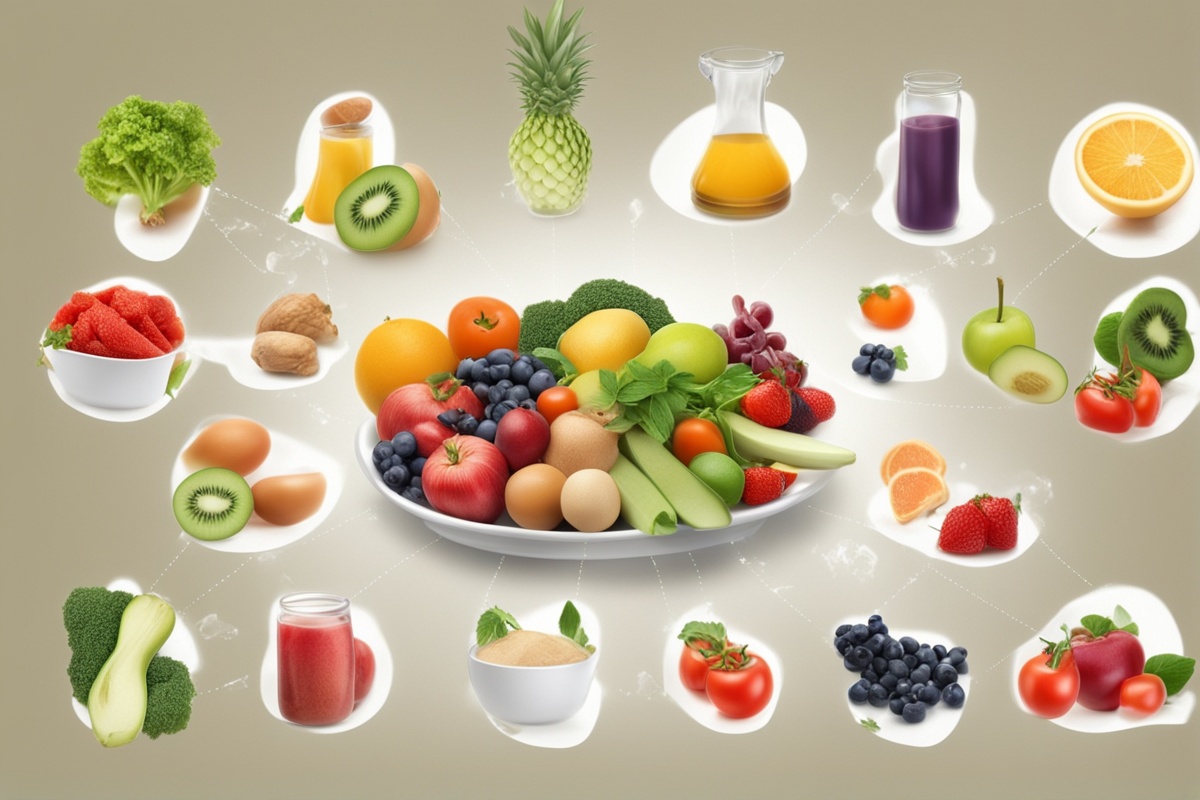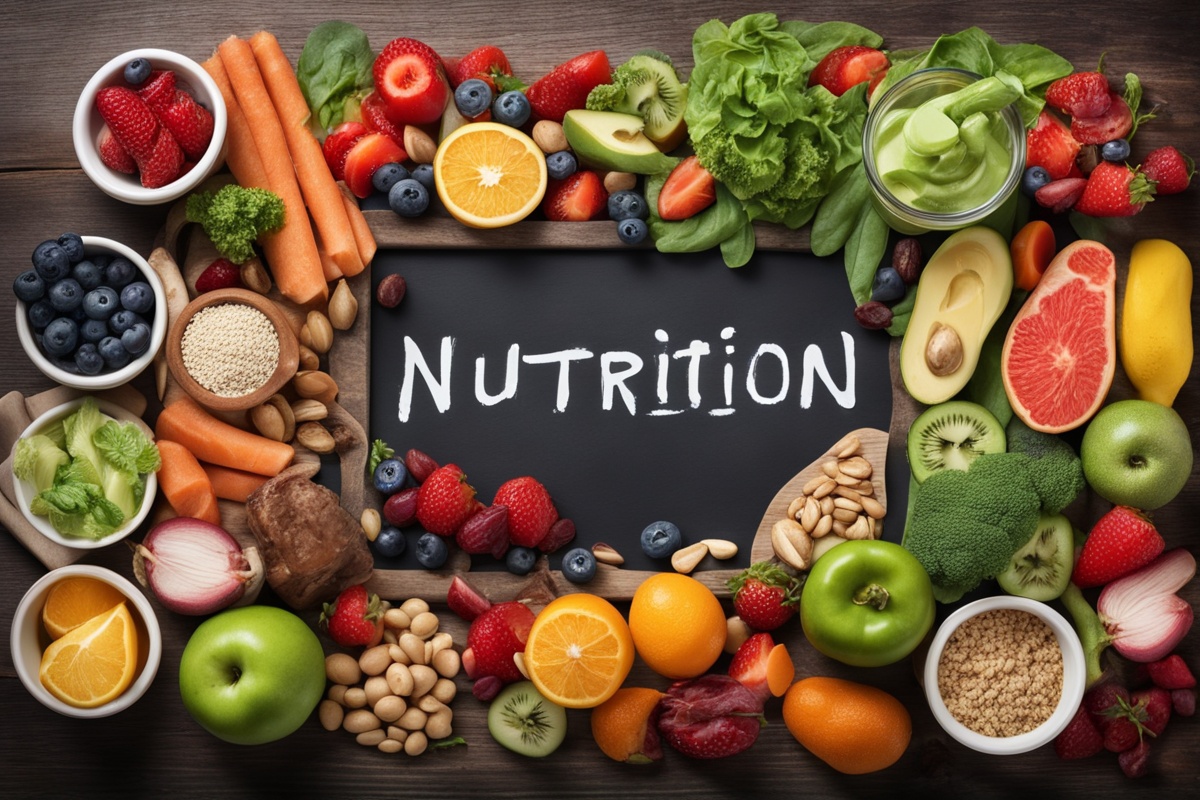Let’s face it: achieving a balanced diet feels like walking a tightrope sometimes, doesn’t it? One day, you’re confidently piling your plate with veggies and lean proteins; the next, you’re staring down a pint of ice cream wondering where it all went wrong. I’ve been there—trust me. But here’s the good news: a balanced diet isn’t about perfection. It’s about consistency, small wins, and learning what works for your body. In this post, I’m diving deep into actionable, tried-and-true balanced diet success tips that’ll help you stay on track without feeling deprived or overwhelmed. Whether you’re just starting out or fine-tuning your habits, these insights—backed by science and real-world experience—will guide you toward sustainable health.
What Does a Balanced Diet Really Mean?
Before we get into the nitty-gritty, let’s clear up what a balanced diet actually is. It’s not about cutting out entire food groups or surviving on kale smoothies (though, props if that’s your jam). A balanced diet means getting the right mix of nutrients—carbohydrates, proteins, fats, vitamins, and minerals—in proportions that fuel your body and mind. Think of it as a symphony: every instrument (or food group) plays a vital role in creating harmony. According to the Dietary Guidelines for Americans, a balanced plate often includes half veggies and fruits, a quarter protein, and a quarter grains, with healthy fats sprinkled in. But here’s the kicker: balance looks different for everyone. A marathon runner’s plate might be carb-heavy, while someone managing diabetes might prioritize low-glycemic options. The goal? Meet your unique needs while enjoying what you eat.
Start with a Mindset Shift: It’s a Lifestyle, Not a Diet
Here’s where most of us trip up: we treat a balanced diet like a temporary fix. “I’ll eat clean for 30 days, then go back to normal,” we tell ourselves. Spoiler alert—that doesn’t work. I remember a time when I’d go all-in on restrictive plans, only to crash and binge on pizza by week two. Sound familiar? The secret to balanced diet success is flipping the script. Stop thinking of it as a “diet” and start seeing it as a lifestyle. This means embracing flexibility over rigidity. Craved a burger? Fine, have it—but pair it with a side salad and call it a day. When you view food as fuel and enjoyment rather than a set of rules, you’re less likely to feel deprived. Research from the American Psychological Association shows that sustainable eating habits stem from positive mindsets, not punishment. So, ask yourself: how can I make healthy choices feel like second nature?
Plan Ahead, But Don’t Overthink It
Planning is your best friend when it comes to balanced diet success—trust me on this. I used to wing it, grabbing whatever was convenient (hello, vending machine snacks), and my energy levels paid the price. Now, I spend a little time each Sunday mapping out meals. It doesn’t have to be fancy. Jot down a rough idea of breakfasts, lunches, and dinners for the week, and keep a few healthy snacks on hand—think nuts, fruit, or yogurt. The key is variety. Rotate your proteins (chicken one day, lentils the next), mix up your veggies, and don’t shy away from experimenting with spices to keep things exciting. A study published in the Journal of Nutrition found that people who plan their meals are more likely to meet nutrient needs and avoid overeating. But here’s a pro tip: don’t stress if life throws a curveball. Missed a planned meal? No biggie—just get back on track with the next one.
Portion Control: Listen to Your Body’s Cues
Ever wonder why you feel stuffed after a meal, yet still reach for seconds? It’s often because we’re out of tune with our hunger and fullness signals. Portion control isn’t about tiny servings or counting every calorie—it’s about mindfulness. Start by using smaller plates; studies from Cornell University show that larger plates trick our brains into thinking we need more food. Next, slow down. It takes about 20 minutes for your brain to register fullness, so savor each bite. I’ve found that putting my fork down between bites helps me check in with myself: am I still hungry, or just eating out of habit? Also, aim for balance within the meal itself. Imagine you’re at a buffet—don’t load up on just pasta. Grab a bit of everything: some greens, a protein source, a healthy carb. Over time, you’ll get a feel for what “enough” looks like for you.
Don’t Demonize Any Food Group
Carbs are the enemy! Fats make you fat! We’ve all heard these myths, and maybe even believed them at some point. I know I did—until I learned better. Here’s the truth: every macronutrient has a purpose. Carbs give you energy (especially whole grains like quinoa or oats), proteins repair and build tissues (think eggs or tofu), and fats support brain health (hello, avocado and olive oil). Cutting out entire groups often backfires, leading to cravings or nutrient deficiencies. A 2020 review in the British Medical Journal emphasized that balanced diets including all macronutrients are linked to better long-term health outcomes. So, instead of banning bread, pair it with some hummus and veggies. Love sweets? Have a small piece of dark chocolate after dinner rather than swearing off sugar entirely. Balance isn’t about elimination; it’s about moderation.
Hydration: The Unsung Hero of Balance
Let’s talk about something we often overlook: water. I can’t tell you how many times I’ve mistaken thirst for hunger, reaching for a snack when a glass of water would’ve done the trick. Staying hydrated keeps your metabolism humming, aids digestion, and even helps control appetite. The National Academies of Sciences suggests about 3.7 liters for men and 2.7 liters for women daily from all sources (including food). But don’t stress about chugging gallons—listen to your body. Feeling sluggish or headachy? That’s often a sign you need a sip. I keep a reusable bottle on my desk as a constant reminder, and I’ve noticed a huge difference in my focus and energy. Bonus tip: if plain water bores you, toss in some lemon slices or cucumber for a refreshing twist.
Seek Support and Stay Accountable
Going at it alone can be tough—why not bring a buddy along for the ride? Whether it’s a friend, family member, or even an online community, having support makes sticking to a balanced diet so much easier. I’ve got a coworker who’s also into healthy eating, and we swap recipes and tips over lunch. It’s motivating to know someone’s in your corner. You could also track your progress, not with a harsh “pass or fail” mindset, but as a way to celebrate small victories. Maybe you ate veggies with every meal this week—give yourself a pat on the back! Research from the American Journal of Preventive Medicine shows that social support and self-monitoring significantly boost dietary adherence. So, who can you lean on to keep you inspired?
Be Patient and Kind to Yourself
Finally, let’s talk about patience. Rome wasn’t built in a day, and neither is a balanced diet. There will be slip-ups—times when you overindulge at a party or skip a veggie serving for a day. That’s okay. I’ve learned the hard way that beating myself up only derails progress. Instead, focus on the big picture. One off day doesn’t undo a week of solid choices. Treat yourself with the same kindness you’d offer a friend. If you’re struggling, reflect on why. Maybe you’re stressed and turning to comfort food—can you address the root cause? Over time, consistency trumps perfection. Keep showing up, and the results will follow.
References
- Dietary Guidelines for Americans 2020-2025 – U.S. Department of Agriculture
- Diet and Eating Habits – American Psychological Association
- Meal Planning and Dietary Intake – Journal of Nutrition
- Macronutrient Balance and Health Outcomes – British Medical Journal
Disclaimer: This article is for informational purposes only, based on general research and personal experience. It is not intended to serve as a substitute for professional medical or nutritional advice. Always consult a qualified healthcare provider or registered dietitian for personalized guidance tailored to your specific health needs and conditions. The tips and information provided here are meant to inspire and educate, but individual results may vary, and what works for one person may not work for another. Your health and safety should always come first, so seek expert input before making significant changes to your diet or lifestyle.
This content is for informational purposes only and not a substitute for professional advice.


